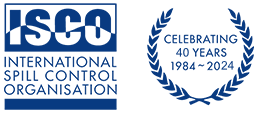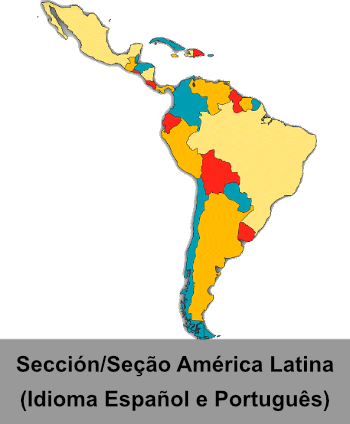THE PUSH TO MAKE ‘ECOCIDE’ AN INTERNATIONAL CRIME TAKES A BIG STEP FORWARD
June 23 – Demands to criminalize acts of environmental destruction and equate them with ‘wars of crime’ has been gaining momentum across the world. A panel of a dozen legal experts brought together by the Stop Ecocide Foundation (SEF) has now decided on a legal definition of the word “ecocide”.
The draft law, unveiled on Tuesday defines Ecocide, first coined in 1970, as “unlawful or wanton acts committed with knowledge that there is a substantial likelihood of severe and widespread or long-term damage to the environment being caused by those acts.”
The International Criminal Court (ICC) can adopt this definition to prosecute the most heinous offences against the environment. The SEF’s initiative establishes ‘ecocide’ in the same context as war crimes, genocide and crimes against humanity.
This is the first time that the definition has been convened globally and in response to political demand to actually look for a solution to this problem, Jojo Mehta, co founder of the Stop Ecocide campaign, told CNBC. It could come into force in four to five years, she added. CNBC / Read more
June 23 – The Netherlands-based Stop Ecocide Foundation, along with a coalition of environmentalists, lawyers and human rights advocates, has been pushing since 2017 to make ecocide a crime prosecuted by the International Criminal Court. The court currently prosecutes just four offenses: genocide, crimes against humanity, crimes of aggression and war crimes.
If the campaign to criminalize ecocide succeeds, the international court would be able to hold accountable those most responsible for major ecological harms, including business and government leaders.
If this definition is adopted as the fifth crime before the international court, it would signal that mass environmental destruction is one of the most morally reprehensible
crimes in the world, advocates said.
“None of the existing international criminal laws protect the environment as an end in itself, and that’s what the crime of ecocide does,” Philippe Sands, professor of international law at University College London and co-chair of the panel that drafted the definition, said at an online news conference Tuesday. NBC News / Read more
U.S., CANADA MEETING BIWEEKLY OVER DISPUTED CLOSURE OF LINE 5
June 22 – U.S. and Canadian officials are holding biweekly meetings to discuss the potential closure of Enbridge’s Line 5 oil pipeline through the Straits of Mackinac and the ramifications of the shutdown in the context of a 1977 treaty between the two governments. It’s not clear whether the state of Michigan has been a party to those
discussions.
The government of Canada in a Monday court filing affirmed its discussions with the U.S. government after the state of Michigan earlier this month questioned the
seriousness of Canada’s intent to invoke the treaty.
“While there have apparently been communications between officials of each government, there is no evidence that negotiations under the treaty itself are in progress,”
Attorney General Dana Nessel’s office wrote in a June 2 filing. The filing referenced a Detroit News article in which a spokesperson for the U.S. State Department said the countries were “not engaged in any formal treaty negotiations.” Detroit News / Read more
INDIA, SRI LANKA HOLD 5TH HIGH-LEVEL MEETING OF COAST GUARDS
June 24 – India and Sri Lanka will seek to expand training opportunities between the coast guards of both countries, Daily FT learns.
The decision was taken at the 5th annual high-level meeting between the Indian Coast Guard (ICG) and Sri Lanka Coast Guard (SLCG), held virtually on Tuesday (22), under the provisions of the bilateral MoU signed between both agencies.
The meeting was co-chaired by the Director General ICG Krishnaswamy Natarajan and Director General SLCG Rear Admiral Anura Ekanayake. Each delegation had representatives from their respective ministries of foreign affairs.
“Both coast guards assured strengthening of the operational level interaction for search and rescue, preservation and protection of the marine environment, information sharing to deter narcotics trafficking by sea, continuous professional engagement for experience sharing, and revalidated the established operational and communication procedures between the two coast guards,” the SLCG said in a statement. Daily FT / Read more
AUSTRALIA: VICTORIA’S NEW ENVIRONMENTAL LAW FROM 1 JULY 2021
June 21 – With 1 July just around the corner, have you determined whether you need a new development or operating licence or a new permit or registration for your activities under Victoria’s new environmental protection reforms?
This is the second in our series of articles on how to comply with the significant amendments to the Environment Protection Act 2017, which comes into force on 1 July 2021 (new EP Act). Our May article explored the key new duties, transition to the new licensing regime and an overview of the new Regulations and Guidance materials.
We now look at the new ‘permissions’ and ‘determinations’ procedures, and provide insights into activities that were not previously regulated but will now require approval from the Environmental Protection Authority (EPA).
The new EP Act will introduce a broader, risk-based compliance framework. This new regime will consist of three tiers of ‘permissions’ that correspond to the risk of the underlying activity. These tiers range from ‘licences’ (for the highest-risk activities), ‘permits’ (for medium-risk activities) to ‘registrations’ (for lower-risk activities). ‘Risk’ for this purpose is informed by both the likelihood and consequence of the risk occurring.
The Environment Protection Regulations 2021 (new EP Regulations), which will also commence on 1 July 2021, will specify which tier of permission is required for each activity specified in the new EP Regulations, and the application and assessment processes for those permissions. Hall & Wilcox / Read more
CANADA: GOVERNMENTS OF CANADA AND QUEBEC INVEST IN THE FUTURE OF THE ST. LAWRENCE
June 22 – The governments of Canada and Quebec are determined to protect the St. Lawrence River through joint scientific research, conservation, restoration, and collaborative projects, with the support of their partners. From a desire to continue this collaboration, which has existed for more than thirty years, the governments have jointly committed to making the St. Lawrence a healthy and sustainable environment for future generations.
Today, Canada’s Minister of Environment and Climate Change, the Honourable Jonathan Wilkinson, and Quebec’s Minister of the Environment and the Fight Against Climate Change, Minister Responsible for the Fight Against Racism and Minister Responsible for the Laval Region, Benoit Charette, announced that the governments of Canada and Quebec will invest $39 million and $25 million respectively over five years for the conservation and enhancement of the St. Lawrence River. These investments are part of the new 2021–2026 program under the Canada-Quebec Agreement on the St. Lawrence, also referred to as the St. Lawrence Action Plan
2011–2026. Government of Canada / Read more
CANADA: ADOPTION OF 2021–2026 PROGRAMMING FOR THE 2011–2026 CANADA QUEBEC AGREEMENT ON THE ST. LAWRENCE
June 22 – Since 1988, the governments of Canada and Quebec have been working together to conserve, restore, protect and enhance the St. Lawrence ecosystem. Thi collaboration has lasted over 30 years, and wishing to ensure continuity, both governments have committed to make the St. Lawrence healthy and sustainable for generations to come. Their targeted actions have helped to:
- reduce pollution;
- conserve, rehabilitate and develop habitat for plants and animals;
- encourage sustainable navigation practices;improve knowledge and understanding of the St. Lawrence;
- promote community outreach and involvement.
In order to continue this work while adapting to the emerging problems facing the St. Lawrence River, in 2011, the governments of Canada and Quebec committed to renewing this partnership for a fifteen-year period with the signature of the 2011–2026 CanadaQuebec Agreement on the St. Lawrence.
This agreement, commonly known as the “St. Lawrence Action Plan” (SLAP), involves ten departments and agencies from theGovernment of Canada and nine departments and agencies from the Government of Quebec. To implement the plan, three 5-year plans have been adopted, including those for 2011–2016 and 2016–2021. The most recent plan adopted will cover the 2021–2026 period. It will be implemented jointly by Environment and Climate Change Canada and the Quebec Department of Environment and the Fight against Climate Change.
In keeping with the 2016–2021 programming, the 2021–2026 programming comprises 32 projects aimed at biodiversity conservation, sustainability of uses, and improved water quality in the St. Lawrence. Government of Canada / Read more
CROATIA: NEWS FROM MEDITERRANEAN OIL INDUSTRY GROUP (MOIG)
June 25 – 15 June 2021, the training course on “Readiness Evaluation Tool for Oil Spills (RETOS)”; was held at Iberostar Averroes Hotel in South Hammamet-Tunisia in cooperation with the National Agency of Environment Protection (ANPE). The training was animated by Samir Khedhira, General Controller Expert and REMPEC Focal Point; from ANPE. The event gathered 23 delegates from ANPE, EAM, SAROST, SEREPT, STIR, STU, TRAPSA, TOPIC and TPS. The training agenda included an introduction of West MOPoCo project and RETOS tool, the accompanying manual ARPEL and the International Guide for Oil Spill Response Planning and Readiness
Assessments (IOSC 2008), presentation of SEREPT Oil Spill Contingency Plan, gap analysis and recommendations.
On 16-17 June 2021, the regional workshop on Oil Spill Waste Management was held remotely at Iberostar Averroes Hotel in South Hammamet-Tunisia; in cooperation with the Center of Documentation, Research and Experimentation on Accidental Water Pollution (Cedre) and the Regional Marine Pollution Emergency Response Centre for the Mediterranean Sea (REMPEC). This workshop was animated by Arnaud Guéna, Deputy Director and Production Manager from Cedre, Malek Smaoui, Programmer Officer (OPRC 90) and Phyllis Therdros; Junior Programme Officer (VIS) from REMPEC. The event gathered 32 delegates from MOIG members and relevant Tunisian stakeholders such as: ANPE, Security Directorate, EAM, ENI TUNISIA, ETAP, General Secretariat of Marine Affairs, Ministry of Transport and Logistics, ONPC, SAROST, SEREPT, STIR, STU, TRAPSA, TOPIC and TPS.
The main objectives of this workshop were to know the use the available tools in REMPEC on oil spill waste management, to be informed on the National and Regional context related to waste management following the conclusions and recommendations of the last workshop held in Tunis, to learn about waste management methods, to understand the logistic chain of waste management to implement in the event of pollution, to get an idea about the cost of waste disposal for the various treatment options and to practice the implementation of waste management plan through practical works.
The first day of the workshop included oral presentations hinging around Regulatory and institutional framework, waste management guide and tools, reminder on POSOW 1&2 projects and waste module, definition and description of wastes, minimization of waste quantities, sorting at source and primary storage and Transport of wastes. The second day was dedicated to topics related to temporary storage, treatment and disposal and presentation of concrete case in Lebanon and France. In addition, participants afforded the opportunity to simulate five oil spill waste management scenarios happened in the rocks, beach, bay, Mangroves and beach. At the end of the workshop, certificates were awarded to participants by MOIG chairman on behalf of Cedre and REMPEC representatives for the completion of the Regional workshop on oil spill waste management. http://medoilgroup.org/
FINLAND: ACTIONS TO REDUCE PHARMACEUTICAL EMISSIONS IN THE BALTI SEA REGION
June 21 – Hundreds of different medicines are consumed in the Baltic Sea region daily. Medicines benefit human and animal health,but after the use many of them end up to environment and can cause adverse effects to wildlife. CWPharma project worked for over three years to gather and produce data on the consumption of pharmaceuticals and their concentrations in the environment, to identify the most problematic pharmaceutical compounds and to find the best ways to decrease their emissions to the environment.
The project ran from October 2017 to December 2020. The consortium consisted of 15 organisations, from seven countries in the Baltic region: Denmark, Estonia, Finland, Germany, Latvia, Poland, and Sweden. Its work is co-ordinated by the Finnish Environment Institute (SYKE). More information:
- CWPharma Project website
- CWPharma Project: Executive Summary of Political Action Plan.pdf
- Executive Summary of Political Action Plan in other languages (Danish, Estonian, Finnish, Latvian, Polish, Swedish
- CWPharma project story on Inrerreg Baltic website
- CWPharma 2 project information: Link to Research Gat





